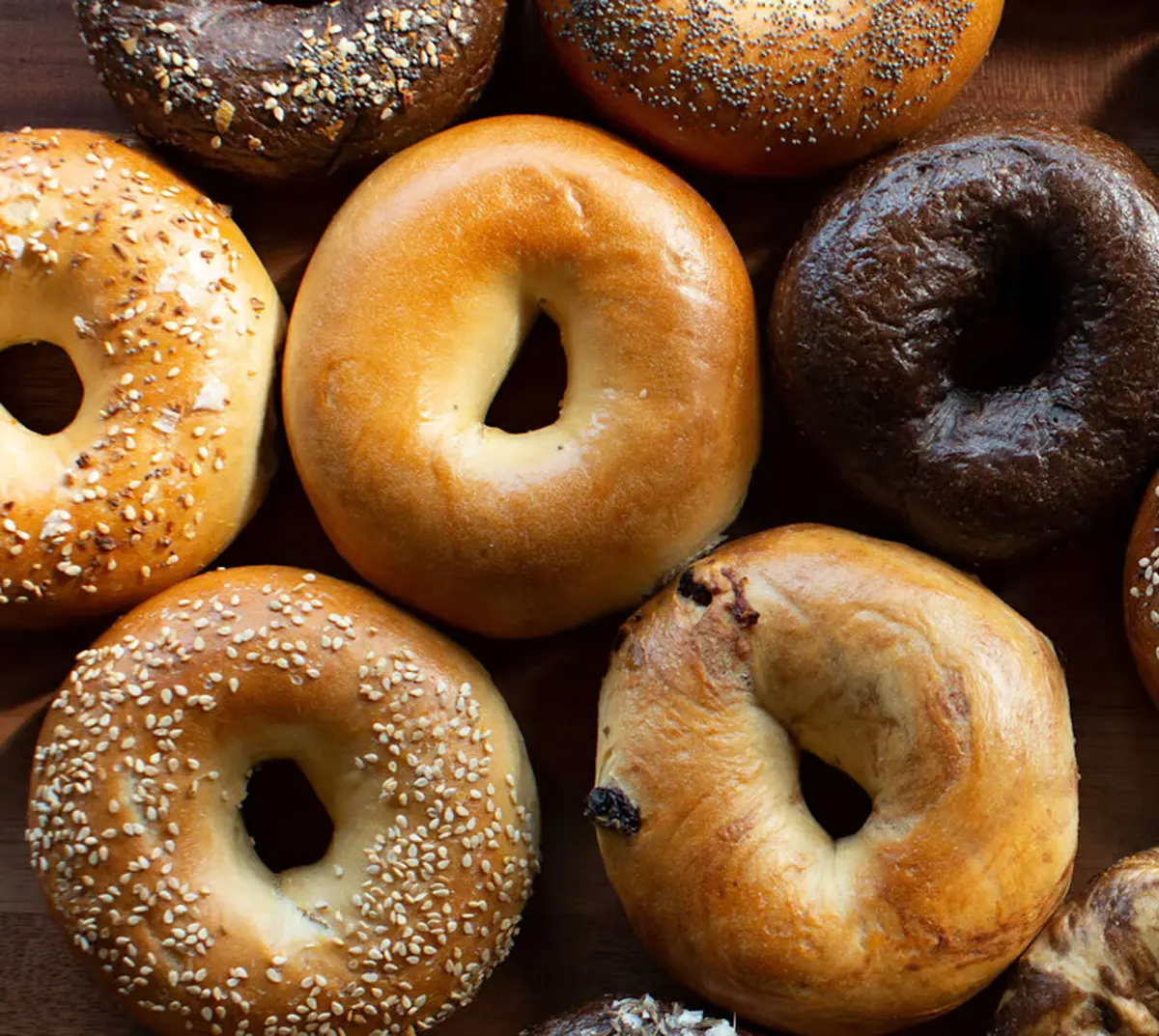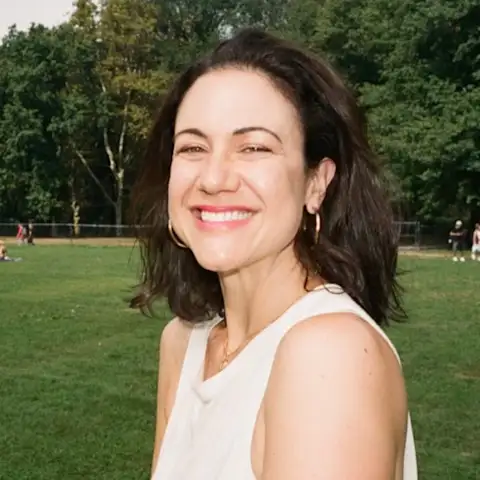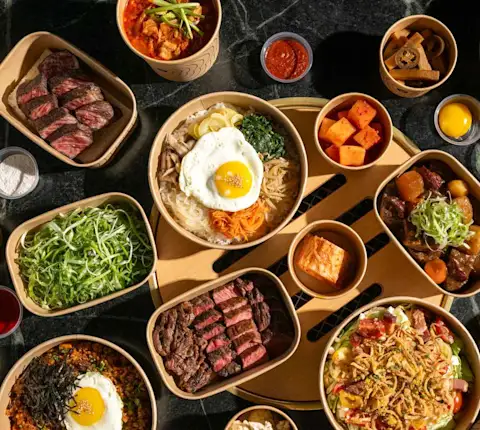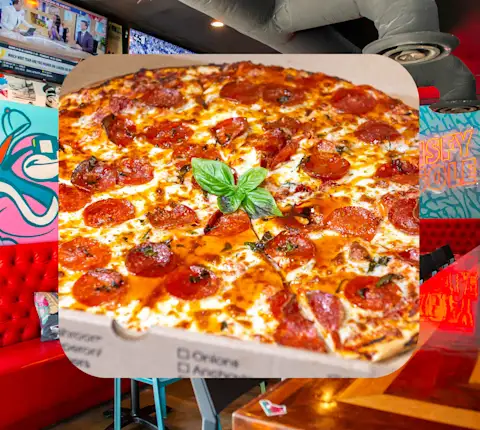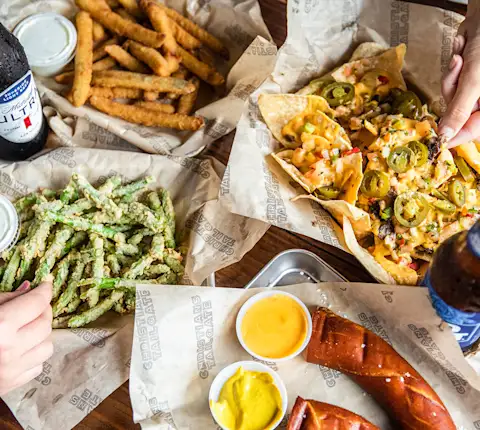*This article includes mentions of merchants or brands who are partners of DoorDash, and DoorDash may receive a commission if you choose to make a purchase from these merchants or brands.
Order from Boichik BagelsThe first time Emily Winston’s grandmother saw her with short hair, she said, “‘Ah, you're such a boichik,’” (pronounced “boy-chick”) Winston recalls, referring to the Yiddish term of endearment for a boy or a young man. “‘Are you having your bar mitzvah soon?’ She was saying I looked like a 12-year-old boy. She had never seen me with my hair chopped so short, so she was teasing me, but in a sweet way.”
Years later, Winston chose the name for her store, Boichik Bagels, as a nod to her Jewish heritage and queer identity. She had no idea it would become an international phenomenon.
Winston grew up eating spreads of bagels and smoked fish with her grandmother and the rest of her family in central New Jersey. Sometimes she would accompany her dad to the city, where he worked as a consulting food chemist, and they would trek to the Upper West Side for smoked fish from Zabar’s and bagels from H&H, which Winston calls, “the gold standard for bagel brunching.” (They have since sold their name, but the new H&H bagels are not the same recipe.)
Fast forward to 2011. Winston lived in the Bay Area, where she abstained from bagels. “I wasn’t impressed by them,” she says. “I just figured I would eat bagels when I go home to visit.” When she heard the news that H&H was closing, she felt “devastated that I would never have my very favorite bagel ever again.”
Fueled by nostalgia, she started seeking out bagels in Northern California, and finally found one she liked at the now-closed Schmendrick’s Bagels. “I thought, this isn’t exactly my beloved H&H, but this is a solid New York bagel. So I knew it could be done. It's not the water!”
Bagel-making became an obsessive hobby. Winston watched videos and tried recipes she found online and in cookbooks. She set up a taste-test method for sampling her experiments. She grew up with a food chemist dad, after all, who would often do things like conduct a family taste test. “Being analytical was part of my family’s culture,” she says. She was also inspired by the wine-tasting course she took while in college at Cornell. “It felt natural to start trying to put words to it, to help describe the qualities I was looking for.” Thus, she built a vocabulary to analyze the bagels, one that she trained her friends-slash-taste-testing-recruits to use.
One important criterion? “I wanted a malty taste on what I called ‘the lick.’ I had a memory of putting an H&H bagel in my mouth and tasting the outside crust on my tongue before biting into it.” Other criteria included the level of sweetness, the chew, and the thickness and crustiness of the crust. “I named H&H’s crust ‘leathery,’ versus crispy or crunchy or hard, like an artisan bread.”
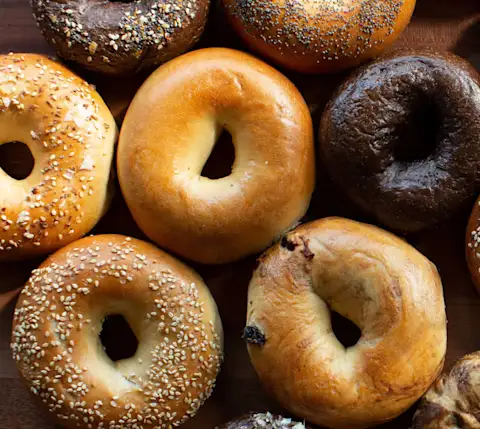
All this effort paid off. After five years, she had a bagel she was happy with. She introduced it to the neighborhood at large in a series of pop-ups, first at a festival in 2017, and then in her house in Alameda, and at East End pizza. “I had a business consultant say to me, ‘It's great that your friends are telling you how great your bagels are when they're a) your friends and b) eating them for free. How about strangers tell you they’re great and paying you money for them?’ That proof of concept was the point of doing the pop-ups. Right away, I got my answer, which was yes, strangers want to pay money for these.”
She was on the lookout for a space to rent, when Noah of Noah’s Bagels called her up to tell her his original store in Berkeley was closing. “So, the original Noah became the original Boichik. I like to call it a historic bagel location.”
The day Boichik Bagels opened doors in 2019, there was a line down the block. The popularity skyrocketed once a 2021 New York Times article came out. It was titled, provocatively, “The Best Bagels Are in California (Sorry, New York).”
“That was wild. I had a fantasy that was like, gosh, maybe, maybe one day The New York Times would say that my bagels were okay. So when that came out, it was shocking and wild and it felt like winning the Nobel Prize for bagels.”
What happened next was something she wasn’t prepared for. “There was a two-hour wait. The website blew up, and people around the world were wanting me to mail order bagels around the planet.” Things settled down, but to “a new higher plateau of normal.”
She asked herself how she wanted to grow this business. Open more locations, sure, but she also decided to build a factory and experiment with bagel automation. Could she automate some of the bagel-making process she had worked so hard to perfect, and still achieve the same results?
Winston started thinking of bagel-making as two halves of one process. The first half is mixing the dough, separating it out, rolling it out into bagel shapes, setting those dough segments onto a rack, and putting them into the refrigerator overnight. “That sets up the long, slow proofing process, similar to sourdough, which develops the flavor in the skin.” That first half is the one Winston’s factory has successfully automated.
The second half happens the next day: Bakers come in and take the dough out, boil it in hot water for 30 seconds, and then put it on bagel boards into the oven, where it finishes baking directly on the baking stone. “That half of the process is still old-school,” she says, “like they've been doing in New York for 100 years.”
If you visit the factory — they have standing tours every Saturday — you can look through a huge glass window and see the action. “I designed it so you get this amazing view of the dough line. It's very Willy Wonka; the pieces of dough are going by on conveyor belts, and then a robot arm scoops them up and puts them in the rack at the end of the line.”
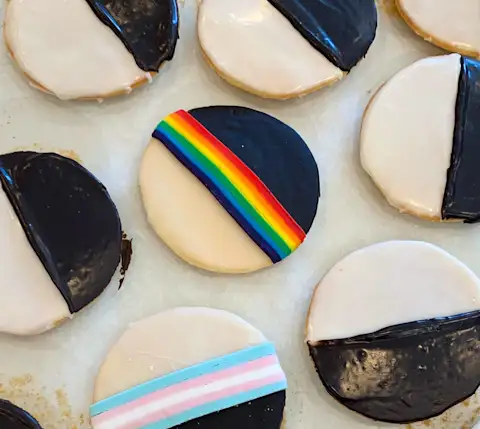
Whether you visit the factory or one of her six stores in Northern California, it’s likely you will be helped by someone in the LGBTQ+ community. “What's cool is that since I am visibly LGBT,” Winston says, “we've attracted a lot of LGBT employees who feel that this is a preferable working environment because it’s totally accepted here, and there's not going to be any problem.”
For Pride every year, they festoon their black-and-white cookies with a rainbow striped ribbon made out of fondant, and they sell rainbow-bagel hats. “The only rainbow bagel that we make is inedible. I don't like edible rainbow bagels, but I like them as a graphic!”
“Pride is a major holiday in the Bay Area, that's for sure,” she continues. “I want to celebrate that. We probably have a disproportionate number of LGBT fans and customers. They're excited to see a queer woman succeeding in the business world.”
No one, perhaps, is more excited to see Winston succeed than her family members, who each inspired Boichik Bagels in their own way. Her dad, for instance, aside from the formative H&H visits, also took her to food factories when she was growing up, which directly influenced her vision for the bagel factory. “I would see all the crazy machinery, and I thought that was great.”
Her mother often made her tuna sandwiches as a kid, and Boichik uses that recipe, as well as the recipe for her mother’s egg salad. “It needs to taste like what I grew up with, but the idealized version. That's my whole thing — to bring my childhood food memories around bagels to this foodie California environment. Nostalgia is such a key ingredient.”
As for her grandmother, who unknowingly named the store, she died before Winston launched the business. “It’s a real bummer because she would have loved it,” says Winston. “She was a real yenta. I wish we could rewind to when she was in better health and she could be perched in the front of the shop, telling everyone how these are her granddaughter’s bagels, and they are the best bagels ever. She would have done that with bells on. She could sit there all day talking to people.”
Order from Boichik BagelsPHOTO CREDIT: courtesy of Boichik Bagels


